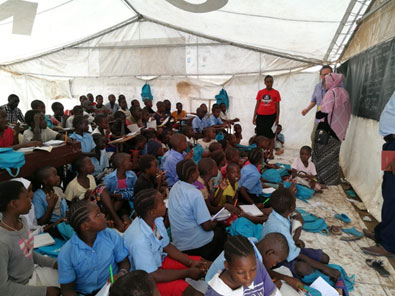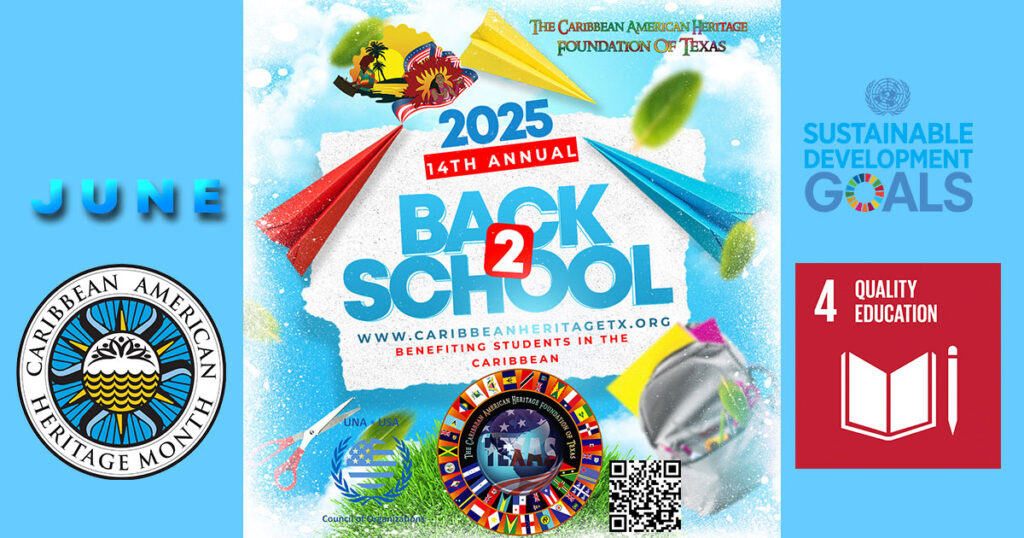Education
Ensure inclusive and equitable quality education and promote lifelong learning opportunities for all
Sustainable Development Goal 4 (SDG 4)
Education enables upward socioeconomic mobility and is a key to escaping poverty. Over the past decade, major progress was made towards increasing access to education and school enrollment rates at all levels, particularly for girls. Nevertheless, about 260 million children were still out of school in 2018 — nearly one fifth of the global population in that age group. And more than half of all children and adolescents worldwide are not meeting minimum proficiency standards in reading and mathematics.
Want to join us in making a difference?
SDG Goal 4 Targets
- 4.1 By 2030, ensure that all girls and boys complete free, equitable and quality primary and secondary education leading to relevant and Goal-4 effective learning outcomes
- 4.2 By 2030, ensure that all girls and boys have access to quality early childhood development, care and preprimary education so that they are ready for primary education
- 4.3 By 2030, ensure equal access for all women and men to affordable and quality technical, vocational and tertiary education, including university
- 4.4 By 2030, substantially increase the number of youth and adults who have relevant skills, including technical and vocational skills, for employment, decent jobs and entrepreneurship
- 4.5 By 2030, eliminate gender disparities in education and ensure equal access to all levels of education and vocational training for the vulnerable, including persons with disabilities, indigenous peoples and children in vulnerable situations
- 4.6 By 2030, ensure that all youth and a substantial proportion of adults, both men and women, achieve literacy and numeracy
- 4.7 By 2030, ensure that all learners acquire the knowledge and skills needed to promote sustainable development, including, among others, through education for sustainable development and sustainable lifestyles, human rights, gender equality, promotion of a culture of peace and non-violence, global citizenship and appreciation of cultural diversity and of culture’s contribution to sustainable development
- 4.A Build and upgrade education facilities that are child, disability and gender sensitive and provide safe, nonviolent, inclusive and effective learning environments for all
- 4.B By 2020, substantially expand globally the number of scholarships available to developing countries, in particular least developed countries, small island developing States and African countries, for enrolment in higher education, including vocational training and information and communications technology, technical, engineering and scientific programmes, in developed countries and other developing countries
- 4.C By 2030, substantially increase the supply of qualified teachers, including through international cooperation for teacher training in developing countries, especially least developed countries and small island developing states
Adopt-A-Future Program
Under the Adopt-A-Future Program, UNA-USA partnered with USA for UNHCR to prevent a lost generation by giving refugee children in UNHCR schools the education they need to build a better future. The program focused on the UN refugee camps in Kakuma and Dadaab, Kenya by expanding access to education, improving the quality of teaching and learning, and ensuring safe learning environments. The U.S. Council of Organizations appreciates the effort invested into this program and is eager to work with individuals from UNA USA chapters who wish to continue relief efforts in these and other UN refugee camps.
Kenya
Kakuma, located in northwest Kenya is a large refugee camp under UNHCR’s mandate providing refuge for some 200,000 people primarily from South Sudan, Somalia, Ethiopia, Uganda and DRC/Congo. There are currently approximately 45,000 students in the four areas comprising greater Kakuma which is served by 23 schools.
In March 2019, a member of the Greater Lansing UNA USA Chapter (Ron Quejas-Risdon) visited the primary school and spoke at length with the Head Teacher and staff of Horseed School, UNHCR, Global One, Lutheran World Federation, parents, Kenyan Ministry of Education administrators, and community leaders. As a result of that visit, The U.S. Council of Organizations has a “wish list” of construction projects most needed by the school. The list includes a secure perimeter fence for the school compound, a small library, a small computer lab, and a combination auditorium/classroom facility. Ron returned to Kakuma in March 2020, with Najat Abdi Muhammad (Kenya Country Director, Global One, UK) to scope out a school construction project.
This new project at Horseed Primary School would provide improved facilities and directly benefit 2453 students on a continuous and daily basis. Also receiving important benefits would be the faculty as well as the local host community students currently attending Horseed Primary school.


